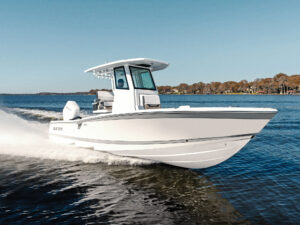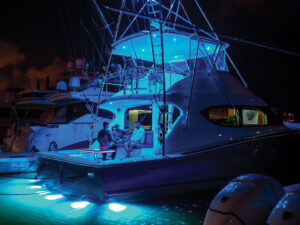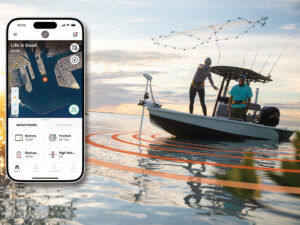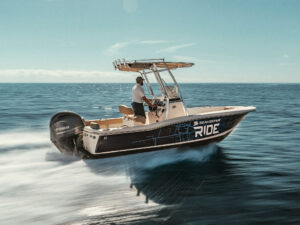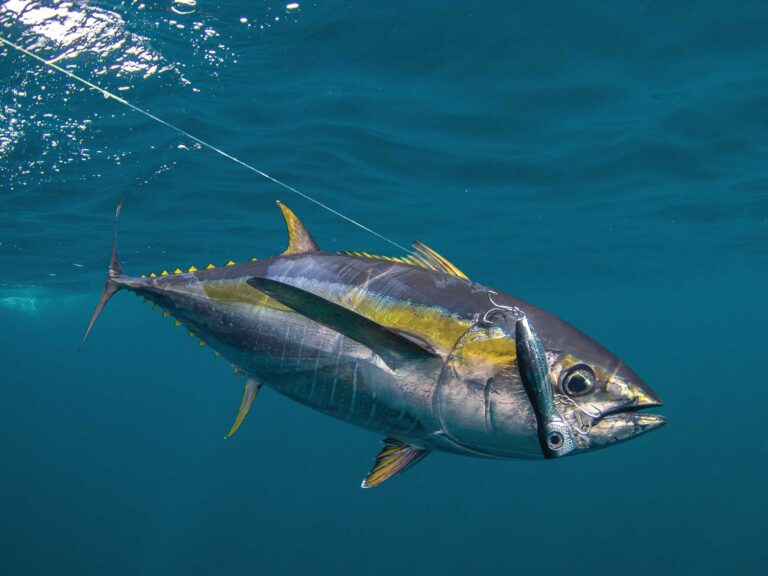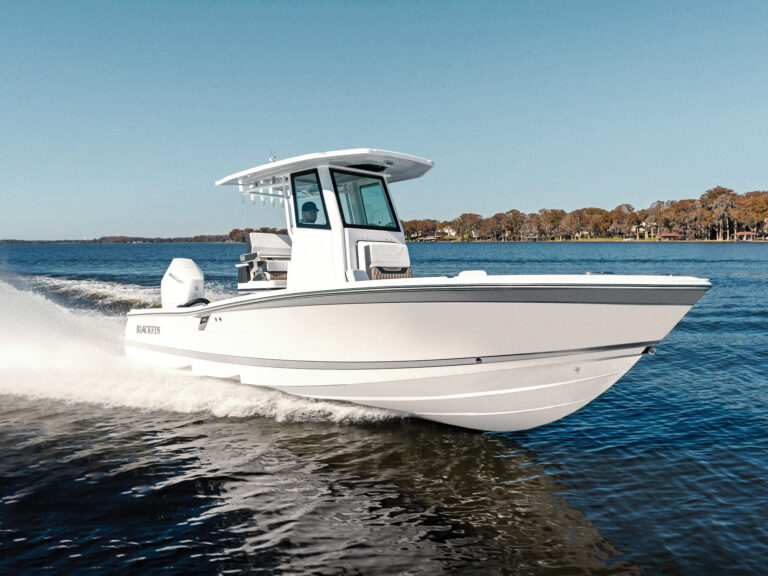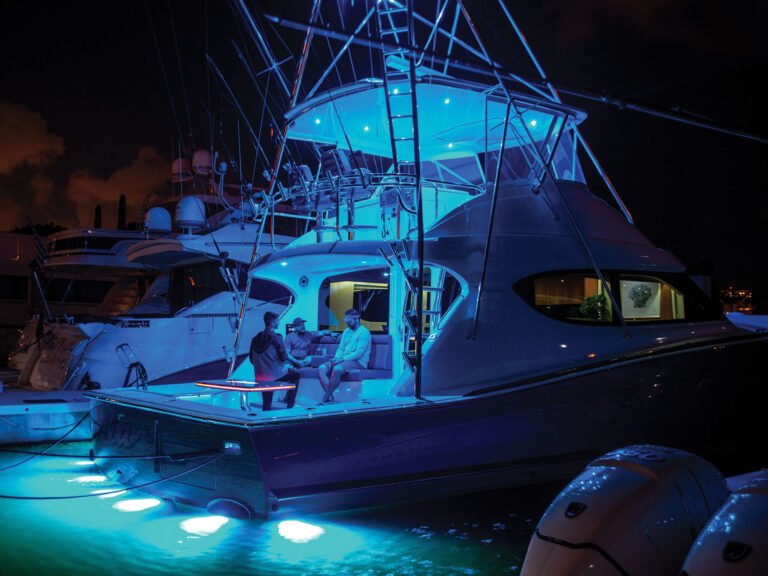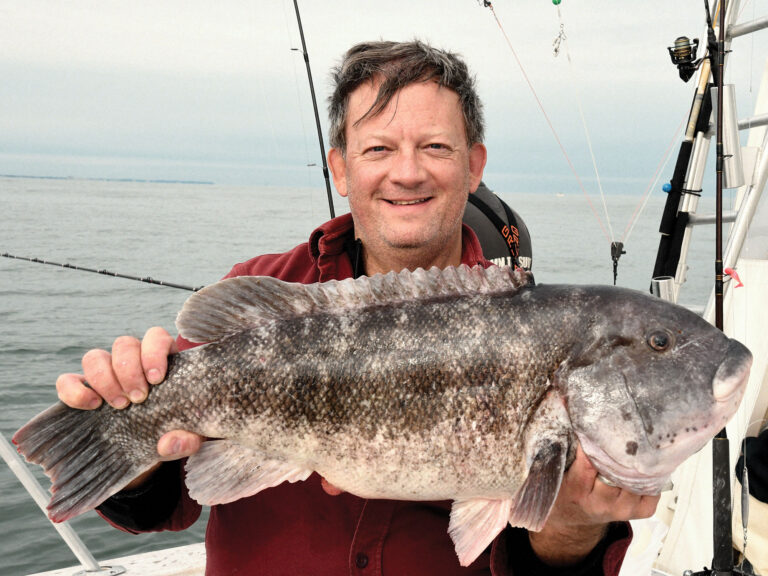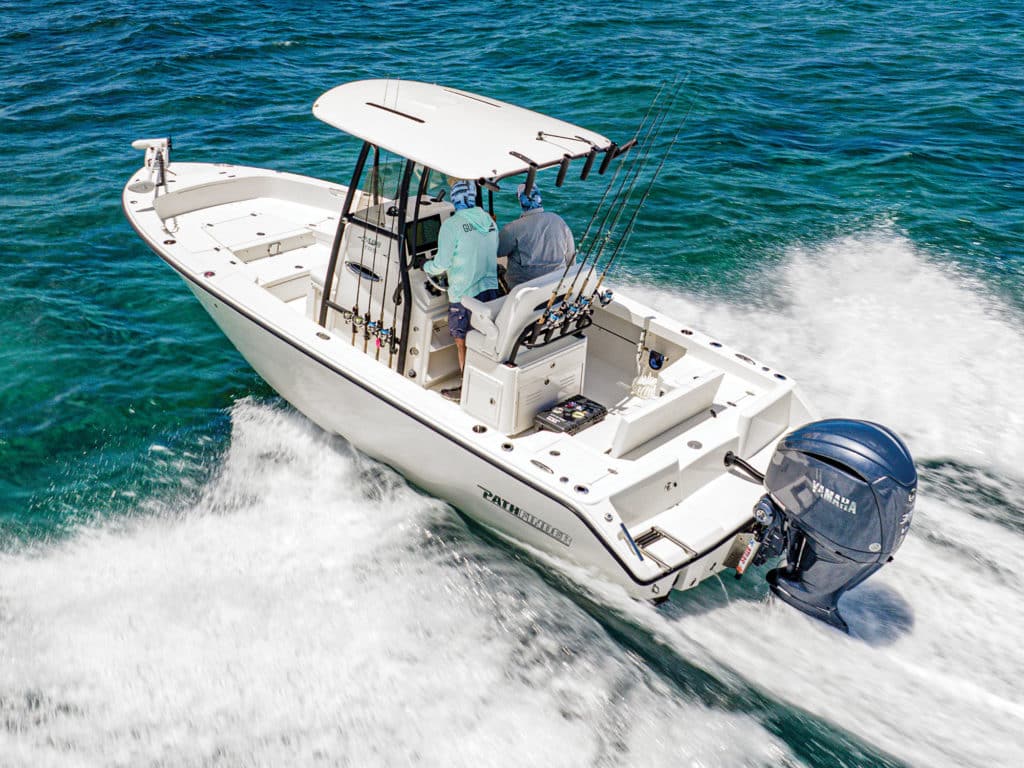
The traditional hard-core bay boat with flush decks fore and aft, an abbreviated midcockpit and limited seating has today evolved into many different forms, including one of the most versatile: the new Pathfinder 2400 TRS.
Pathfinder Boats ranks as one of angling’s most iconic brands, a company that 30 years ago pioneered the development of bay boats and essentially defined the category. Over the years, many other boat companies have followed suit with their own versions. Yet Pathfinder continues to play a dominant role in this market, thanks in large measure to the addition of versatile variations of the bay boat. A case in point: the redesigned 2400 TRS.
What makes this boat special is a three-prong design approach that includes features to enhance offshore fishing capabilities, retain inshore effectiveness, and integrate creature comforts for more leisurely days on the water.
TRS stands for third row seat, and that’s a clue to the comfort side. It references the 40-inch-wide bench seat (with a backrest) that folds up out of the aft deck. The boat also features bow cushions with the flip-up backrests on the forward deck. With seating for eight people, a removable bow table, and available shades for both bow and stern, you’ll be set for family cruising.
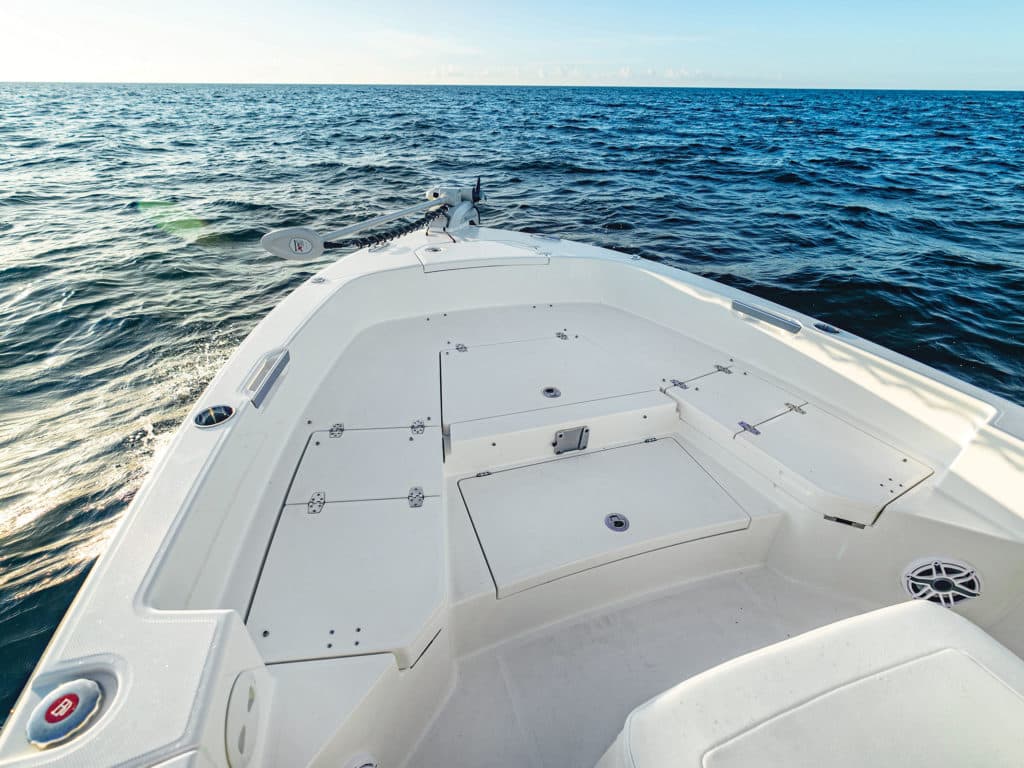
For hardcore fishing, the 2400 TRS offers a full complement of features to help anglers succeed. One is a 6-inch-wider beam than its predecessor model for great stability while fishing.
The boat also features 24 inches of gunwale height in the midcockpit, with 9.5 inches of freeboard around the 7-foot-long-by-5-foot-wide forward casting deck for safety when venturing offshore to fish wrecks or blue water when weather permits.
The hull features a single step and 15 degrees of deadrise at the transom. While test conditions were calm, we were able to self-generate 2- to 3-foot waves, then circle back through them to gauge the ride quality. The 2400 TRS knifed smoothly through the waves at speed and should provide a smooth ride while cruising offshore.
To optimize the 2400 TRS’ shallow-water capabilities, Pathfinder engineered the hull to draft just 15 inches at rest. The standard Atlas jack plate (with 6 inches of setback) lets you elevate the motor to climb on plane quickly and safely in skinny water. A standard 36-volt trolling motor lets you quietly stalk tidal waters.
The hull provided predictable and confident handling, made easy thanks to the built-in electric steering on the Yamaha F300 that powered our test boat. A deluxe Llebroc helm seat includes armrests and individual flip-up bolsters. Two tiers of angled footrests at the base of the center console let you brace your feet in choppy water while underway. The seat base lets you carry all the tackle you need with a locker full of trays for plastic boxes on the port side, and a tackle cabinet and drawer on the aft side.
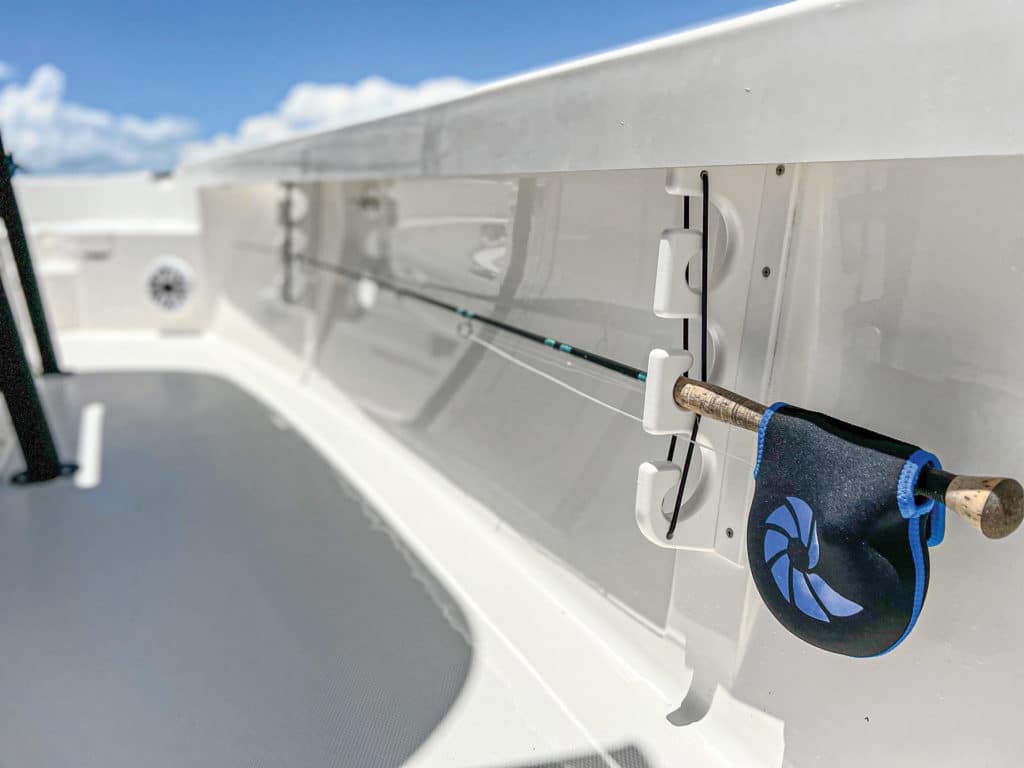
There’s rod stowage aplenty, including undergunwale racks for sticks up to 9.5 feet in length. An optional four-rod rack sits abaft the helm seat. Our boat came with an optional hardtop and rod stowage that included four holders on the port side of the console (with special cutouts in the top to accommodate rod tips). Six rod holders lined the aft edge. Four gunwale rod holders make it easy to troll or fish multiple rods on the drift.
The dash panel featured an optional Garmin 16-inch multifunction display, as well as an optional JL Marine Audio display tied to an amplifier and eight JL coaxial 6.5-inch and 7.7-inch speakers, four of them on the underside of the hardtop. The hardtop included two overhead boxes, one in front of the helm area and one abaft.
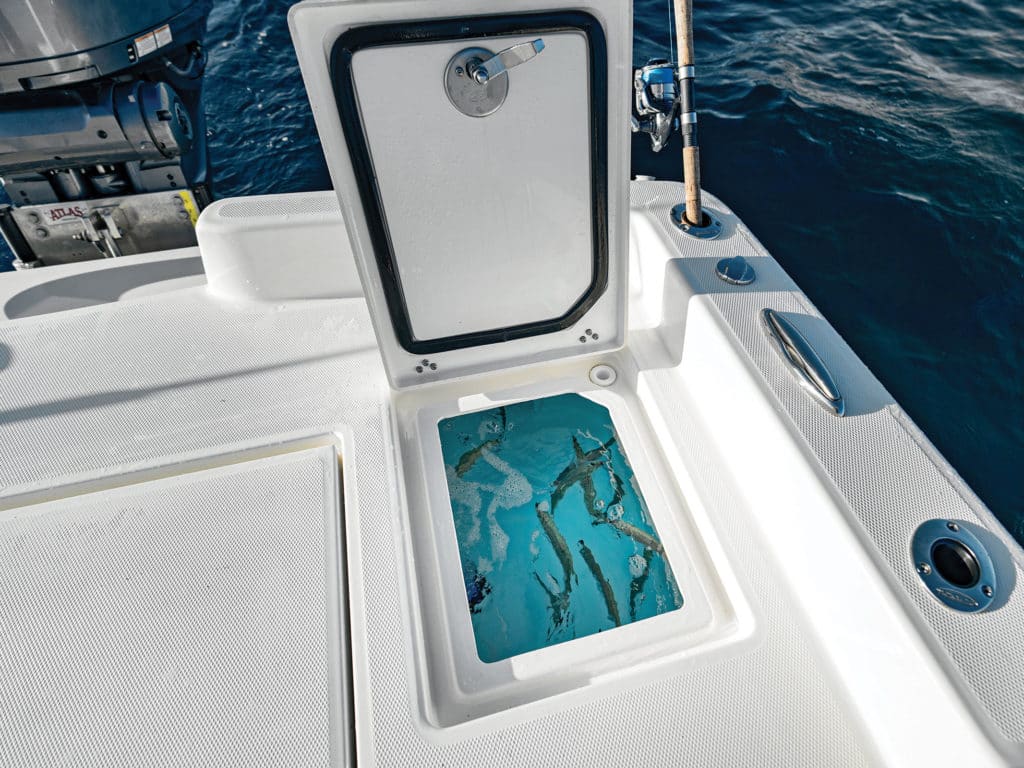
The 2400 TRS features a 38-gallon livewell under the aft deck to port, and you can option a 38-gallon release well on the opposite side. An insulated 31-gallon fish box under the fore deck lets you ice your catch. Additional cold storage comes in the form of a standard 80-quart Engel cooler with a cushion and contoured backrest on the forward console. An optional fiberglass console forward seat cooler is offered as well.
A step-down console interior is available with an optional pump-out marine head. The companionway is on the starboard side, and a window on the port side ushers in fresh air and daylight.
Yamaha’s F300 propelled our test boat to a top speed of 54 mph at 6,000 rpm, though in previous tests Pathfinder was able to push the average top speed to 56 mph.
The 2400 TRS achieved its best efficiency at 35 mph while running at 4,500 rpm, where the F300 drank 13 gph for an average of 2.7 mpg, equating to a range of 214 miles based on 90 percent fuel capacity.
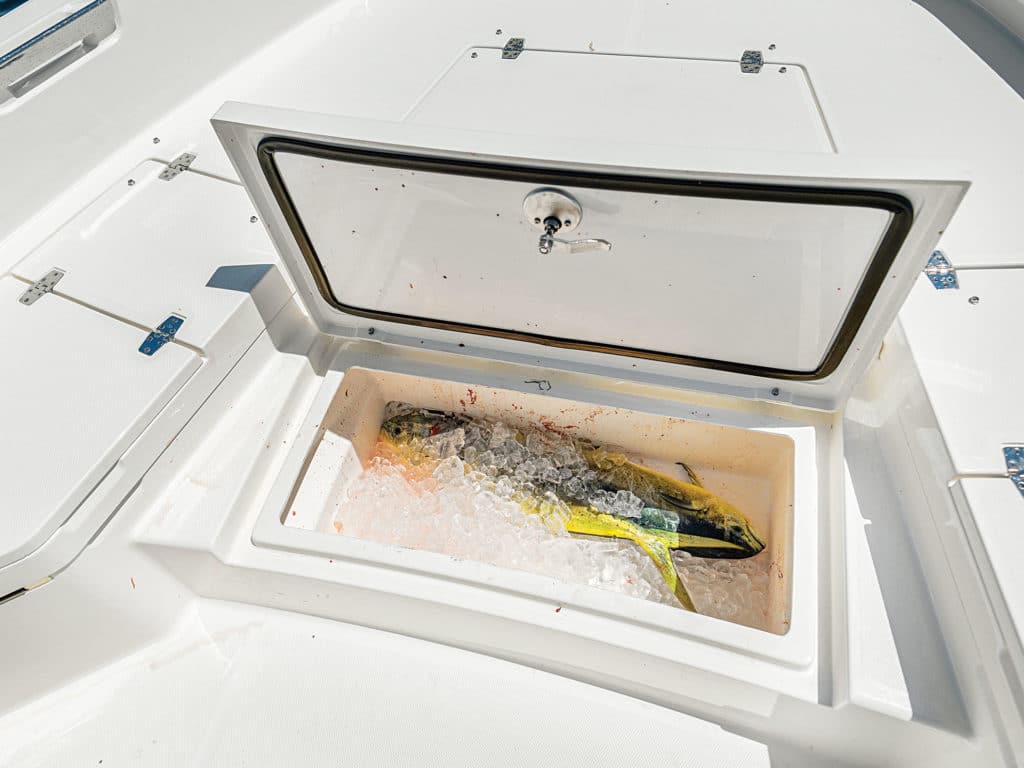
Test Conditions
- Weather: Sunny
- Location: Fort Pierce, Florida
- Wind: Calm
- Sea State: Calm
- Test Load: Three adults, 22 gallons of fuel
Specifications
| Length: | 24’4″ (w/ swim platforms) |
| Beam: | 9′ |
| Draft: | 1’3″ |
| Fuel: | 88 gal. |
| Deadrise: | 15 degrees |
| Water: | 9 gal. |
| Weight: | 4,100 lb. (w/ power) |
| Max HP: | 350 |
| Price: | From $117,200 w/ Yamaha F300XSB |
Pathfinder Boats – pathfinderboats.com

